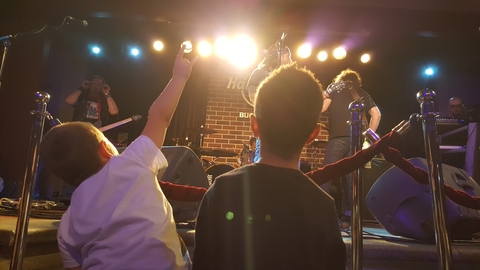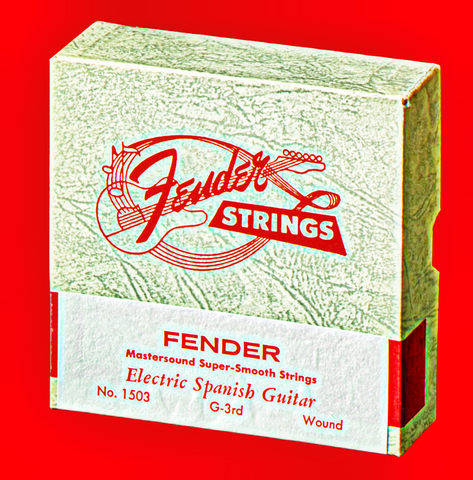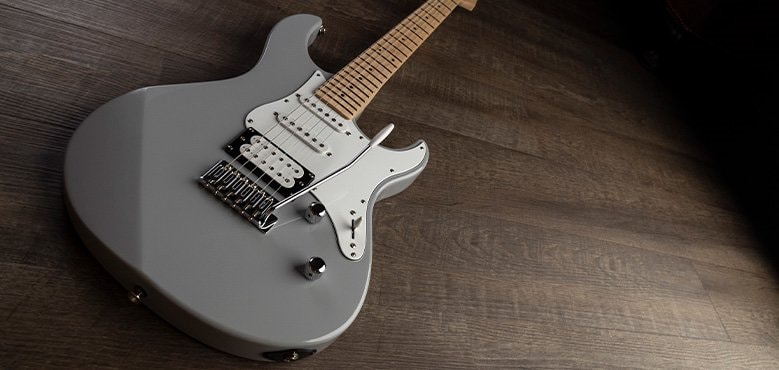How To Overcome Performance Anxiety

For many of us, experiencing stress when stepping onto a stage to perform is healthy and to be expected, particularly during the early days of a musical career…
Why? Well, playing your songs on stage in front of an audience is a big step for many fledgling musicians. In some ways, it would be more surprising if you didn’t feel any kinds of nerves.
However, in certain cases, musicians can experience extreme performance anxiety and go through such stress that they are put off from wanting to get out there and share their music.
No matter how acute your anxiety, there are tips and coping mechanisms you can deploy to help get you on stage. Here are some essential pieces of advice around reducing the chances of experiencing stress…
Performance anxiety is perfectly normal
If you put yourself in a situation where you are going to feel pressure, then you and your body will react. This is a perfectly normal reaction and if you can establish this kind of mindset, then you can progress.
Rather than becoming more concerned about why you are feeling like you are, try and accept that nerves are just part of your performance. This will not banish them completely. But it should mean you are willing to accept that this is how your body reacts. Realising this can prevent your anxieties from spiralling and hopefully diminish their impact on your performance. Try and get comfortable with being uncomfortable…
Breathe and breathe again
Focusing on your breathing can be an effective way of staying calm, particularly as you approach show time. Try and regulate your breathing by slowing it down, focusing on staying in control. You can do this at a comfortable pace and really concentrate on breathing in and out. Hopefully this should ensure that you remain relaxed and focused ahead of taking to the stage. There are various different types of breathing exercises out there that can help musicians of all kinds.
Will you take this to your deathbed?
…is a question you can ask yourself to put your concerns in some sort of perspective. Ask yourself if forgetting certain chords or lyrics will be something you consider on your deathbed. It’s unlikely that this will be the case so rather than being too worried by what you cannot control in the moment, try and focus on enjoying your time on stage. You’re far more likely to remember the elements you relished rather than those you were stressed by.
Prepare as much as possible
One of the main reasons for experiencing performance anxiety is a fear of being underprepared or not ready to get out on stage. You can try and remedy this by practising as much as possible and knowing your role and part inside out. Ahead of a show, give yourself plenty of time to consider what the day will be like – whether it be what you need to take with you to how you’re planning on getting to a gig. Of course, you can’t control everything but by giving yourself plenty of time, writing lists and generally being super-organised, you can help minimise the risk of being late or forgetting something important.
Make yourself big
Body language can play a role in reducing the potential impact of performance anxiety so consider how you carry yourself. Indeed our non-verbal behaviour can have a powerful impact on how we feel. So try and adopt a positive posture and energy when getting ready to perform on stage. Stand up tall and make yourself feel big and powerful.
Set realistic expectations
Minimising the amount of mistakes you make on stage is a sensible course of action. But try not to set unrealistic expectations and believe each performance will be blemish free. Even the best guitarists, drummers and vocalists have off days and make errors on stage no matter how perfect everything might look in an Instagram video. Instead, try and focus on matching your energy with the song and aim for a great performance rather than pitch perfection.
Your audience will usually be on your side
If you have an audience who have come to watch you perform, then remember that the majority will be there to urge you on to greatness. This isn’t always the case but for the most part, an audience is there to cheer you on rather than criticise any flaws. You might be worried that a crowd is judging you – but try to resist this and focus on giving them as entertaining a time as possible… good luck!
From the blog

Rockstars in Training: The Best Kids’ Electric Guitars for 2024

Redefining Your Riffs: How Electric Guitar Strings Shape Your Sound


